'Avatar: The Way of The Water': An Awkward, Expensive Failure
No sequel had bigger shoes to fill than 'Avatar: The Way of the Water.' The 2009 original was a cultural phenomenon. It beat the record as the highest-grossing film of all time. It influenced an entire industry to begin producing 3D televisions and mobile devices, and it changed the way movies were made.
It was filmed using technology created by director James Cameron. He also helped to develop the Na'vi language, their culture, and a virtual, alien ecosystem based on models of our own rainforest.
The Way of the Water promised to be just as ambitious as its predecessor. It had one of the highest production costs of any film ever made, topping out at over $460 million. Cameron spent the better part of a decade developing more technology, new filming techniques, and equipment. He promised all new ocean ecosystems. He even dove to the bottom of the Mariana Trench, vowing to bring back footage for the sequel.
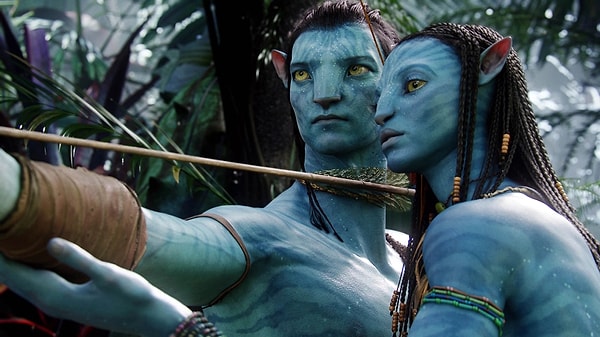
Courtesy of Lightstorm Entertainment
Cameron was seen as the eccentric mastermind of a carefully constructed blockbuster machine, operating on an epic scale. Working on one of his films is like training to become an Olympic medalist. It's a rigorous, years-long process that includes an extensive course racket, acrobatics, and vocal coaching. Actors were trained in Na'vi and taught to hold their breath underwater for 7 minutes at a time. For the original film, they did a stint in the rainforest so they could get familiar with the environment.
Everything was supposed to be perfect, the product of years of meticulous planning and research. Cameron had produced rave sequels before, so we had no reason to doubt him, especially not with his sporadic announcements about the size of the production and his efforts to better the film.
But there were red flags early on. He kept kicking the can down the road, delaying the sequel more than 11 years, once so he could develop the technology to film underwater, which included robotics and new filming techniques, and another time because the writing process was a 'complex job.'
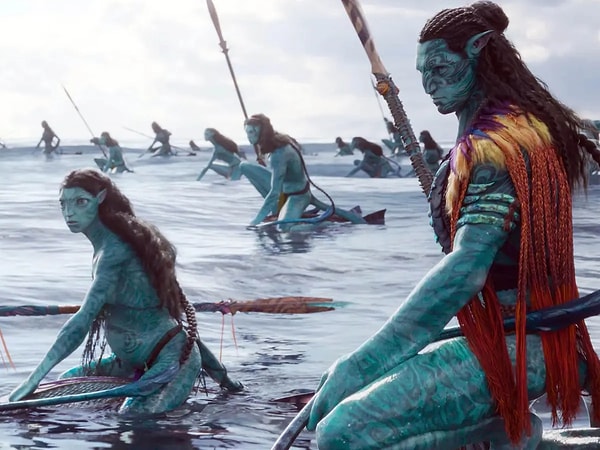
Courtesy of Lightstorm Entertainment
Don't Call Me 'Bro'
Cameron's goal was to create a franchise that empowered indigenous people and inspired them to protect their land. It earned him a predictable boycott from Native American tribes who saw his films as a pasty white showcase of every caucasian prejudice imaginable.
From their perspective, it was thoroughly offensive. He was an outsider appropriating and generalizing their most deeply held beliefs, using gibberish prayers and a white messiah. His efforts to market to them felt belittling and inauthentic. It was like a youth pastor trying to preach to a group of 17-year-old stoners. He made every single mistake in the book. It was impossible to take him seriously.
The sequel was worse. Cameron hoped to do his part to save the oceans by appealing to Polynesians and Pacific Islanders. He appropriated their sacred tattoos and parodied their style. At times the characters would crouch down and stick out their tongues, mocking a stereotypical Maori gesture. He might as well have stuck a feather in his hair and started fanning his mouth. Nothing could possibly have been more transparent.
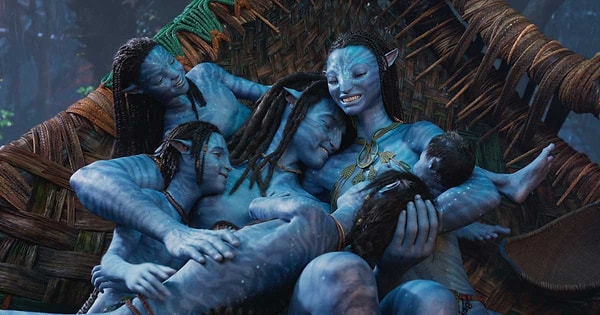
Courtesy of Lightstorm Entertainment
The plot centers around the Sully Clan, a furry blue cheaper by the dozen with an indeterminate number of seemingly identical offspring. Don't ask me what their names are or how many kids they had. Just like the film, they didn't matter one bit. One moment we're aware of them and the next we're supposed to be crying with them.
Instead of giving them personalities, Cameron had them refer to one another as 'bro' and, cringingly enough, 'cuz' minus the 'z.' It wouldn't have seemed out of place for them to start throwing gang signs and beating their chest, announcing which side of the forest they were from. It was so awkward and so frequent, it was like he'd developed a monosyllabic tonal language for hetero-normative adolescent boys. 'Bro' could mean any number of things depending upon the pitch, accent, and inflection.
This would've been fine had it not been for the format. Every scene was centered around another child and their completely forgettable struggle. After three hours, it was impossible to keep track of what was going on, who was alive, and who was dead. The film failed to make us care enough about them to pay attention.
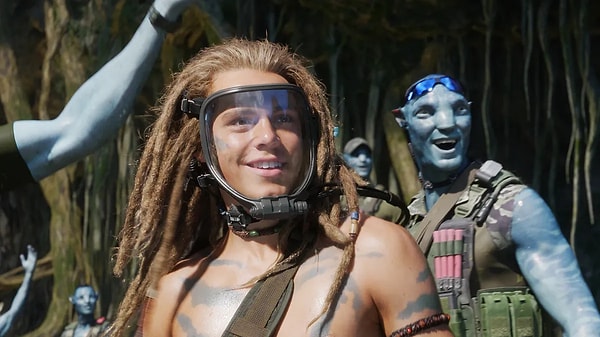
Courtesy of Lightstone Entertainment
Giant Belly Flop
The plot made little sense. When we last saw our furry blue friends, they were evicting the sky-people from Pandora. In the sequel, the humans had developed an entire city, and inexplicably enough, whaling operations. It was a razor-thin excuse to preach to the audience about climate change and the effect it's had on marine mammals.
It did little to further the overall plot of the franchise, and it represented a serious mistake on Cameron's part. Writers are constantly warned off against sermonizing because it kills the magic of the story. The audience rolls their eyes and sees through it. Instead of heeding the age-old advice, he grabbed a dolllar-store megaphone and blasted his message to the masses. It was a ridiculous gamble, and it failed spectacularly.
It added to the awkward dialogue and the constant cultural appropriation, making it difficult for audiences to sit through the extended playtime. Even the visuals, which have been hailed as groundbreaking, were completely underwhelming. Cameron literally became the first man to dive to the bottom of the Mariana Trench, and all he could bring back for us were a few cartoon fish and bioluminescent coral.
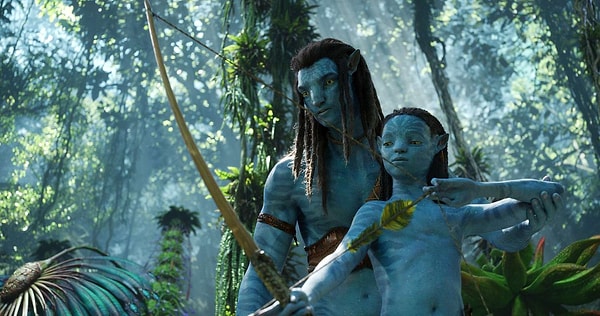
Courtesy of Lightstone Entertainment
Don't spend a cent on the Way of the Water. If you have to watch it, wait until it comes out on streaming platforms--or better yet, get resourceful, and don't feel bad if you do.
James Cameron essentially defrauded investors by fooling them into thinking that he was a maniacal genius bent on creating a masterpiece, and in return, they handed him almost half a billion dollars for production costs.
There's nothing profound, compelling, or even exciting about the new film. It adds nothing to the social discourse, and certainly not the entertainment industry as a whole. Don't expect directors to make use of his robots or his new software. They're all just expensive toys, paid for by what basically amounts to a corny investment scheme.
Keşfet ile ziyaret ettiğin tüm kategorileri tek akışta gör!

Send Comment